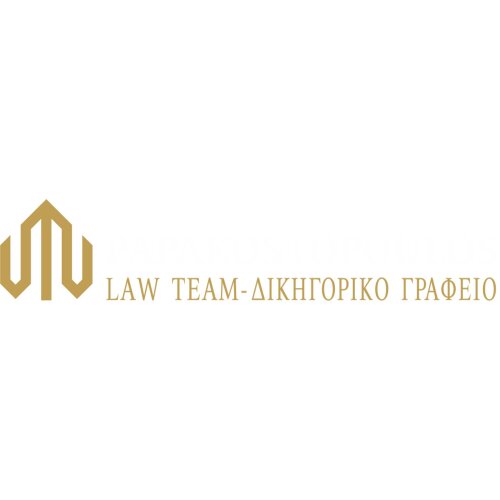Best Inheritance Law Lawyers in Pátrai
Share your needs with us, get contacted by law firms.
Free. Takes 2 min.
List of the best lawyers in Pátrai, Greece
1. About Inheritance Law in Pátrai, Greece
Inheritance law in Pátrai, Greece, governs how a deceased person’s assets are divided among heirs. It covers wills, intestate succession, forced shares for close family, and the roles of executors and administrators. The framework is primarily drawn from the Greek Civil Code and related probate procedures. In practice, residents of Patras frequently navigate property in the Achaia region, family-owned businesses, and assets held abroad, all of which can affect how the estate is settled.
Local experience shows that probate and succession matters often require careful coordination with notaries, the courts, and, in some cases, cross-border rules when foreign assets are involved. A local inheritance-law solicitor or lawyer can help you determine your status as an heir, interpret the form of any will, and manage the steps needed to complete the transfer of titles and debts. This guide focuses on practical, Patras-specific considerations to help you prepare and engage appropriate legal counsel.
2. Why You May Need a Lawyer
- You are an heir contesting a will that directly affects your share of an estate with assets in Patras and nearby towns. A lawyer can assess validity, form, and potential challenges under Greek law.
- You are the executor or administrator of an estate with real estate in Patras. A legal counsel can guide you through probate filings, creditor notices, and asset distribution.
- You expect disputes among siblings, parents, or in-laws about the rightful shares. A lawyer can advise on forced-heirship rules and how to preserve rights within Greek legal limits.
- You hold a cross-border inheritance, with assets in Greece and another country. An inheritance-law solicitor can coordinate with foreign jurisdictions under EU rules and local filing requirements.
- You are updating a will or creating a new one and want to ensure enforceability and proper formalities under Greek civil code requirements in Pátrai.
- You face potential tax or debt issues tied to the estate. A lawyer can help you understand obligations to the Greek tax system and coordinate with authorities as needed.
3. Local Laws Overview
Αστικός Κώδικας - Κληρονομία (Civil Code - Succession)
The Greek Civil Code governs all aspects of succession, including intestate succession and the rights of spouses, children, and parents. It establishes the concept of forced shares (the portion of the estate that certain relatives cannot be deprived of, under specific circumstances). In Patras, this means that heirs and beneficiaries must align with the Civil Code provisions when dividing real property and other assets.
Νόμοι περί Διαθηκών και Διαδικασιών Κληρονομίας (Testament and Probate Procedures)
Testament rules describe how wills must be drafted, witnessed, and authenticated to be valid in Pátrai. Greek law recognizes several forms of testament, and the form chosen can affect how easily an estate is administered after death. The probate process is typically conducted through the local courts and, in many cases, requires notarized documentation to move assets to heirs.
Κώδικας Πολιτικής Δικονομίας - Διαδικασίες Κληρονομίας (Civil Procedure Code - Probate Proceedings)
This code regulates how inheritance matters proceed in court, including petitions for letters of administration, challenges to a will, and disputes over shares. In Patras, the competent authority is often the Court of First Instance (Πρωτοδικείο Πατρών) or the corresponding probate division, depending on the asset scope and complexity.
Recent trends and practical notes for Pátrai residents - The Greek government has been aligning cross-border inheritance rules with EU guidelines, which can affect estates with foreign elements. In complex cases, families may need to engage both Greek and foreign counsel to coordinate asset transfer and tax considerations. See the European Union resources linked below for cross-border guidance.
"Regulation (EU) No 650/2012 establishes a common framework for cross-border successions, including the law applicable to an estate and cooperation between Member States." EUR-Lex - Regulation (EU) No 650/2012
Additional context - For residents of Patras dealing with international or cross-border issues, EU tools and Greek government portals provide guidance on which law applies to succession and how to initiate procedures across borders. See the sources section for official channels you can consult.
4. Frequently Asked Questions
What is the difference between a will and intestate succession?
A will lets you specify how you want assets distributed. Intestacy applies when there is no valid will, and the court assigns shares to heirs according to law.
How do I start probate for an estate in Patras?
Begin by gathering the death certificate, will if present, asset list, and debt records. Consult a Patras inheritance-law solicitor to file the appropriate petitions with the local court.
What is a forced heirship share in Greece?
Forced shares ensure a portion of the estate goes to certain relatives regardless of the will. In Greece, spouses and children have protected interests, subject to specific rules.
How long does a typical probate take in Pátrai?
Time varies by case complexity and court workload. A simple, uncontested succession may conclude in several months, while disputes or foreign assets can extend to a year or more.
Do I need a lawyer to handle an inheritance matter?
While not legally mandatory, a lawyer or solicitor with local Patras experience helps avoid errors, expedite filings, and protect your rights in complex cases.
Can I challenge a will in Pátrai?
Yes, you can challenge on grounds such as lack of capacity, fraud, or undue influence. A lawyer can guide you through evidence gathering and court procedures.
Should I prepare a Will if I own property in Patras?
Yes. A properly drafted will can clarify your wishes, reduce conflicts among heirs, and optimize asset transfer in line with Greek law.
Do I pay inheritance tax on assets in Greece?
Tax obligations may apply to inherited assets. Your lawyer can coordinate with tax authorities to determine rates, exemptions, and filing requirements.
Is cross-border inheritance governed by EU rules?
Yes. Cross-border inheritance in Greece can involve EU Regulation 650/2012 which coordinates applicable law and procedures across Member States.
What is the difference between an executor and an administrator?
An executor carries out the deceased person’s will, while an administrator handles intestate estates when no will exists or the executor cannot act.
What is the role of a notary in inheritance matters?
Notaries certify wills, authenticate documents, and help prepare acts of transfer. They often work alongside courts and lawyers in Patras.
Can foreign assets complicate Greek inheritance procedures?
Yes. Cross-border assets require coordination under both Greek law and EU cross-border rules, which may affect applicable law and filing paths.
5. Additional Resources
- - Official Greek government portal providing guidance on inheritance matters, forms, and legal procedures. https://www.gov.gr
- - Cross-border inheritance information, practical tools, and links to national procedures. https://e-justice.europa.eu
- - EU law establishing common rules for cross-border successions and cooperation between Member States. https://eur-lex.europa.eu/legal-content/EN/TXT/?uri=CELEX%3A32012R0650
6. Next Steps
- Identify all assets in Pátrai and note any foreign property or bank accounts linked to the estate. Gather asset deeds, titles, and debt statements within 2 weeks.
- Consult a Patras-based inheritance-law solicitor to assess whether a will exists and how intestacy would apply. Schedule an initial meeting within 2-4 weeks after collecting documents.
- Determine the probate path and required documents. The lawyer will outline court filings, notary involvement, and timelines specific to the Court of First Instance in Patras.
- Prepare or review the will and any trust or power-of-attorney documents. Complete drafts with your legal counsel prior to signing, to avoid subsequent disputes.
- Notify potential heirs and creditors as needed. Your lawyer can guide you on statutory notice procedures and deadlines to preserve rights.
- File the probate petition or file for administration at the appropriate court. Expect initial hearings within 1-3 months of filing, depending on caseload.
- Monitor the estate settlement, including asset transfers and tax filings. Maintain ongoing communication with your attorney to address any issues promptly.
Lawzana helps you find the best lawyers and law firms in Pátrai through a curated and pre-screened list of qualified legal professionals. Our platform offers rankings and detailed profiles of attorneys and law firms, allowing you to compare based on practice areas, including Inheritance Law, experience, and client feedback.
Each profile includes a description of the firm's areas of practice, client reviews, team members and partners, year of establishment, spoken languages, office locations, contact information, social media presence, and any published articles or resources. Most firms on our platform speak English and are experienced in both local and international legal matters.
Get a quote from top-rated law firms in Pátrai, Greece — quickly, securely, and without unnecessary hassle.
Disclaimer:
The information provided on this page is for general informational purposes only and does not constitute legal advice. While we strive to ensure the accuracy and relevance of the content, legal information may change over time, and interpretations of the law can vary. You should always consult with a qualified legal professional for advice specific to your situation.
We disclaim all liability for actions taken or not taken based on the content of this page. If you believe any information is incorrect or outdated, please contact us, and we will review and update it where appropriate.










